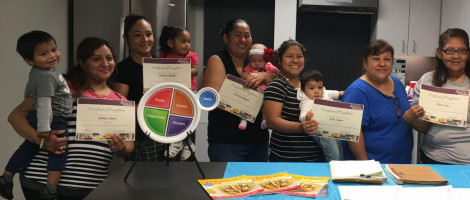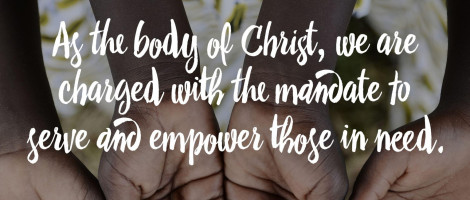Articles by Guest author
1 - 5 of 5 articles

Rio Grande Valley ministry bridges education gap
by Guest author on August 14, 2018 in Hunger Offering
Education is a valued process of growth and development in pivotal years of one’s life, yet it is not always accessible. As a new school year begins, many are unable to afford the costs of learning.

Transformation in West Dallas: Hunger Offering gifts feed the hungry, promote holistic change
by Guest Author on June 22, 2018 in Hunger Offering
By Jaclyn Bonner
The traditional American narrative boasts that anyone can make it if he or she works hard. But the social systems and economic stratum one is born into can often exclude a person from having an opportunity to attain the “American dream.”
West Dallas denizens face a challenging situation. Generational poverty is commonplace in the 11 square miles of Zip code 75212. “More than one of every three families lives below the federal poverty level,” reports Brother Bill’s Helping Hand, a Texas Baptist Hunger Offering ministry that has worked in the community for 75 years.
Unemployment in West Dallas is at 10.5 percent, double the Texas unemployment rate, and 45 percent of West Dallas households earn less than $25,000 annually. More than half of West Dallas adults did not complete high school. The average pre-K child has a vocabulary of 1,500 to 2,000 words, compared to the 5,000 to 7,000-word vocabulary of children living in more affluent Dallas neighborhoods.
Moreover, a health crisis, job loss, and/or family tragedy can drastically change a household’s economic status, creating food insecurity and leading directly to poverty.
In 2015, Elaine Rodriguez* took a medical leave of absence from her work. Dealing with health complications and less income, Elaine and her husband, Jacob*, members of Bill Harrod Memorial Baptist Church, had difficulty putting food on the table.

Hunger separates families, Hunger Offering keeps them together
by Guest Author on June 4, 2018 in Hunger Offering
By Jaclyn Bonner
My late grandmother, Edna Wood Bonner, grew up during the Great Depression. She sought to emulate the strength and selflessness she saw modeled by her own mother, Maggie Wood, who became a single parent of seven shortly after my grandmother and her twin brother were born.
It does not require statistics from the 1930s to understand the difficulties Maggie faced. She labored under the hot sun daily as a cotton picker, but this did not provide an income adequate to raise two sets of twins and three other daughters alone.
Like many mothers who desire the best for their children, Maggie made the difficult decision to place her children in institutionalized care. In 1932, at the age of eight, Edna and her twin brother were sent to the local orphanage, joining their siblings and other children whose parents were deceased or unable to care for their primary needs.
While the current economic situation of our nation does not rival that of the Great Depression, hunger is still hurting families today.
Feeding Texas reports that a study released by the United States Department of Agriculture found that 1.4 million Texas households were food insecure from 2014-2016. One in seven families in our state, 14.3 percent of households, are unable to put food on the table every night.
Hunger in Texas is higher than the national average*, but it is only a microcosm of the pervasiveness and severity of global hunger. The World Food Programme announced that 815 million people, one in nine, go to bed hungry every night. One in three people in the world are malnourished.

Recognizing grace in hardship: A refugee testimony of faith in Bidi Bidi
by Guest Author on December 5, 2017 in Great Commandment
As the head of a 21-member household and pastor of a small, South Sudanese congregation in Bidi Bidi, Uganda, the largest refugee settlement in the world, Jeremy* faces many challenges.

A Christian response to hunger: How church ministry is distinguished from cultural trends
by Jaclyn Bonner on July 24, 2017 in Hunger Offering
Lately, I have been thinking about culture and faith.